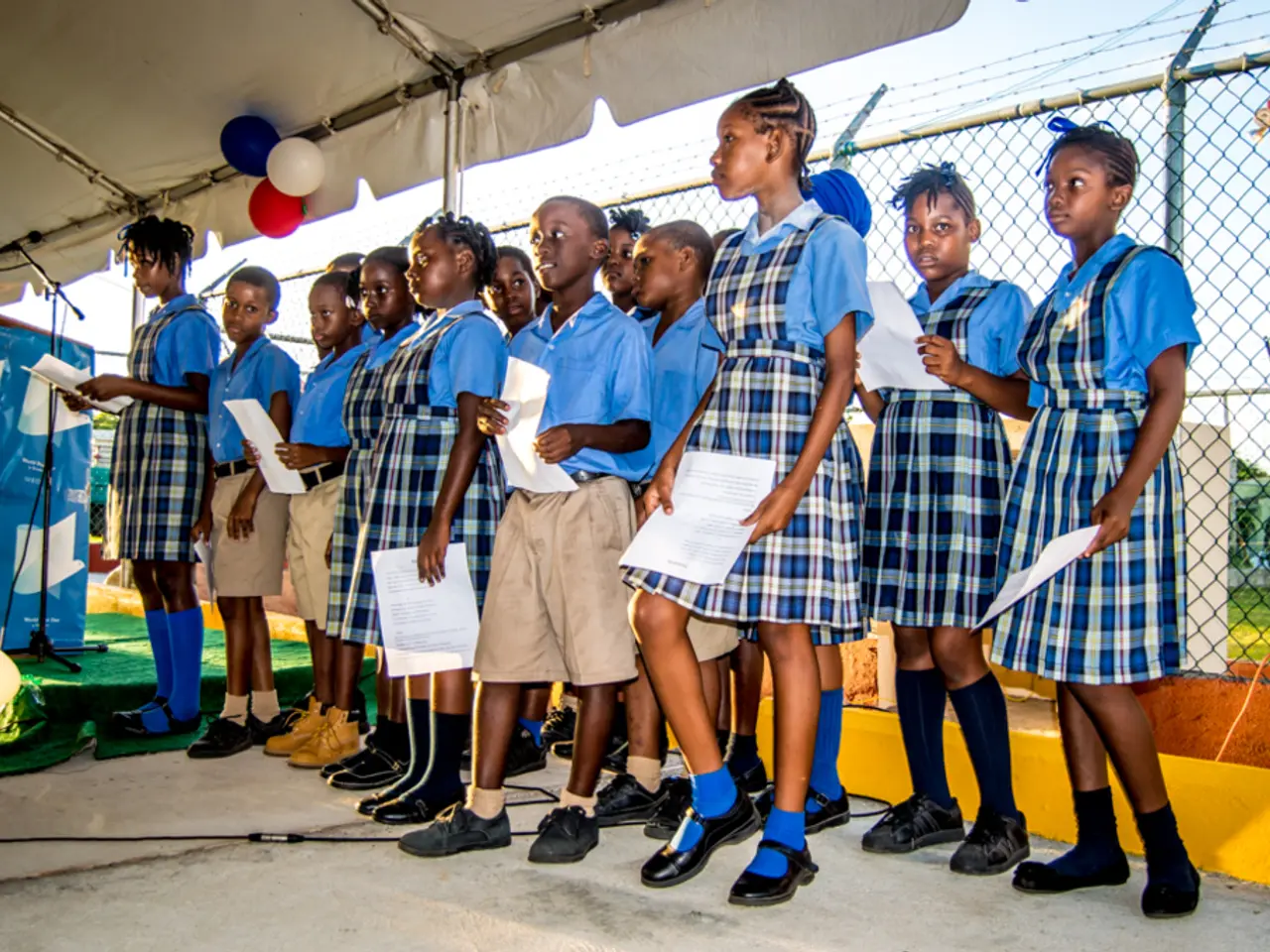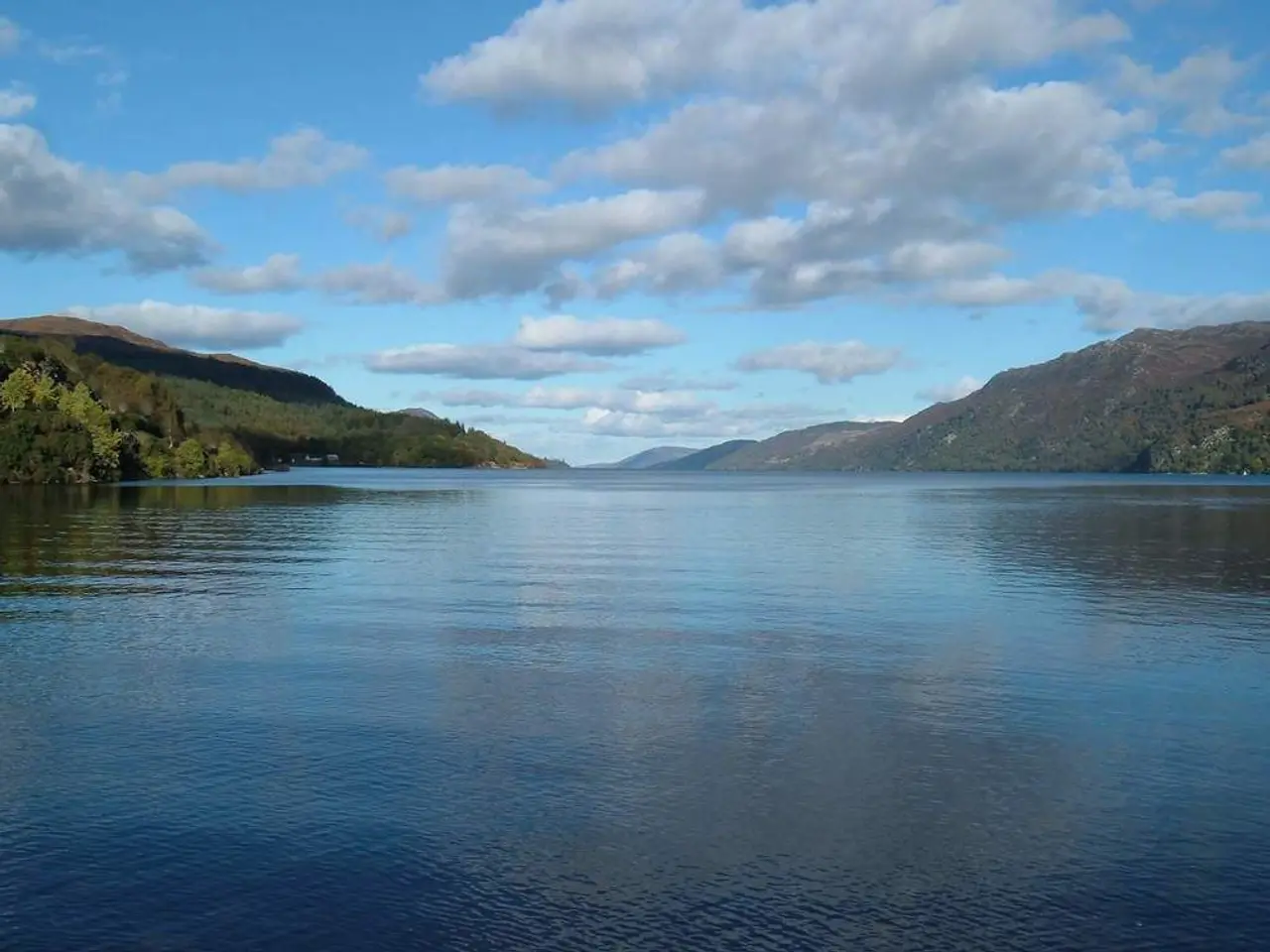Demonstrators Stage Roadside Protest in Florida Everglades, Voicing Objections Against the 'Alligator Alcatraz' Plan
Protesting Against an Immigrant Detention Center: Environmental Concerns Mount in Florida Everglades
A ragtag assembly of environmental activists, Native Americans, and local residents descended upon an airstrip in the Florida Everglades this weekend, united in their efforts to protest the construction of an immigrant detention center.
Saturating sections of U.S. Highway 41 – affectionately known as the Tamiami Trail – hundreds of protesters stood their ground as dump trucks barreled towards the airfield, piled high with construction materials. Motorists passing by honked their horns in solidarity, as protesters waved signs advocating for the protection of the preserve that serves as home to several endangered species and indigenous tribes.
Christopher McVoy, an ecologist and a city commissioner, took to the front lines, spending hours on the picket line. McVoy declared that environmental degradation and concerns over immigration raids in his city fueled his opposition to the project.
"I was teary-eyed," he admitted, "I know people who are terrified."
The Florida administration, led by Governor Ron DeSantis, has taken a hardline stance on immigration enforcement, and has given the green light to the construction of the detention center – coin Department "Alligator Alcatraz" – within the Everglades' swampy terrain, invoking emergency powers to bypass certain purchasing laws.
Despite the objections of Miami-Dade County Mayor Daniella Levine Cava and local activists, construction has forged ahead, with the facility slated to house up to 5,000 immigrants by early July.
Proponents of the project, including the state government and the U.S. Department of Homeland Security, have argued that the facility's location in the Everglades – a notorious habitat for alligators, Burmese pythons, and other massive reptiles – makes it an ideal location for immigrant detention.
"If someone escapes?" DeSantis quipped to the press, "Let the gators get 'em."
Environmental groups, however, have protested the project, citing concerns about the detrimental impact on the fragile Everglades ecosystem. Groups such as the Center for Biological Diversity and Friends of the Everglades have filed a lawsuit to halt the detention center plans, alleging that the facility will have significant negative effects on the surrounding environment, including disruptions to wildlife habitats and potential harm to the delicate hydrology of the wetlands.
"The Everglades is a vast, interconnected system of waterways and wetlands," said Eve Samples, executive director of Friends of the Everglades. "Any wetland impacts at this site could have damaging downstream effects."
Meanwhile, critics have raised concerns about the treatment of detained immigrants and the morality of housing them in such conditions, as well as the potential for human rights abuses.
"It's amazing that the government is willing to pour millions of dollars into a temporary structure, but can't muster the political will to address the root causes of illegal immigration," observed Jessica Namath, founder of Floridians for Public Lands, who attended the protest.
The situation has stirred up a heated debate over environmental regulations, emergency powers, and local oversight in the Florida wetlands, with potential legal implications on the horizon.
Top Reads: Nation & World
- Supreme Court sets limits on nationwide injunctions, but birthright citizenship order's fate remains unclear
- Trump administration pushes for birthright citizenship order, but Supreme Court's decision unclear
- Adopted shelter dog saves man from impending seizure
- Ancient runestone appears in Canada forest, potentially oldest in North America
- Adopting a potty-mouthed parrot proves challenging but rewarding experience
Enrichment Data:
Overall:
The construction of the immigrant detention center, known as "Alligator Alcatraz," is a contentious issue in Florida Everglades, with environmental concerns and local objections mounting.
Environmental Concerns:
- The detention center's construction within the Everglades, a sensitive ecosystem, has triggered fears of environmental damage, including disruptions to wildlife habitats and the fragile hydrology of the wetlands.
- Environmental groups, including the Center for Biological Diversity and Friends of the Everglades, have filed a lawsuit to halt the detention center plans, citing potential negative impacts on the local environment.
Legal Challenges:
- Miami-Dade County officials, including Mayor Daniella Levine Cava, have requested the Florida Division of Emergency Management to halt construction until more information is provided about environmental impacts.
- The Governor's administration has refused to comply, citing emergency powers to proceed immediately to meet "operational demands."
- The facility is already in partial use with temporary buildings and shelters, and the state is negotiating the purchase of the property.
- The conflict highlights the tension between emergency responses and environmental protection, potentially leading to legal disputes over the balance between emergency powers and local government oversight.
- The controversy over the immigrant detention center, coined "Alligator Alcatraz," in Florida Everglades persists, as environmental groups such as the Center for Biological Diversity and Friends of the Everglades have filed a lawsuit, citing concerns about the detrimental impact on the fragile Everglades ecosystem.
- Christopher McVoy, an ecologist and a city commissioner, participated in the protest against the detention center, expressing his opposition due to environmental degradation and fear for immigrant raids in his city.
- Meanwhile, critics have raised concerns about the treatment of detained immigrants and the morality of housing them in such conditions, as well as potential human rights abuses.
- Overall, the situation in the Florida Everglades presents a heated debate over environmental regulations, emergency powers, and local oversight, with potential legal implications on the horizon, particularly surrounding the balance between emergency responses and environmental protection.







